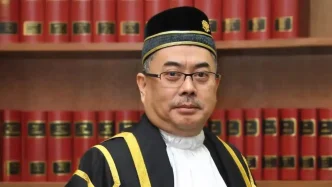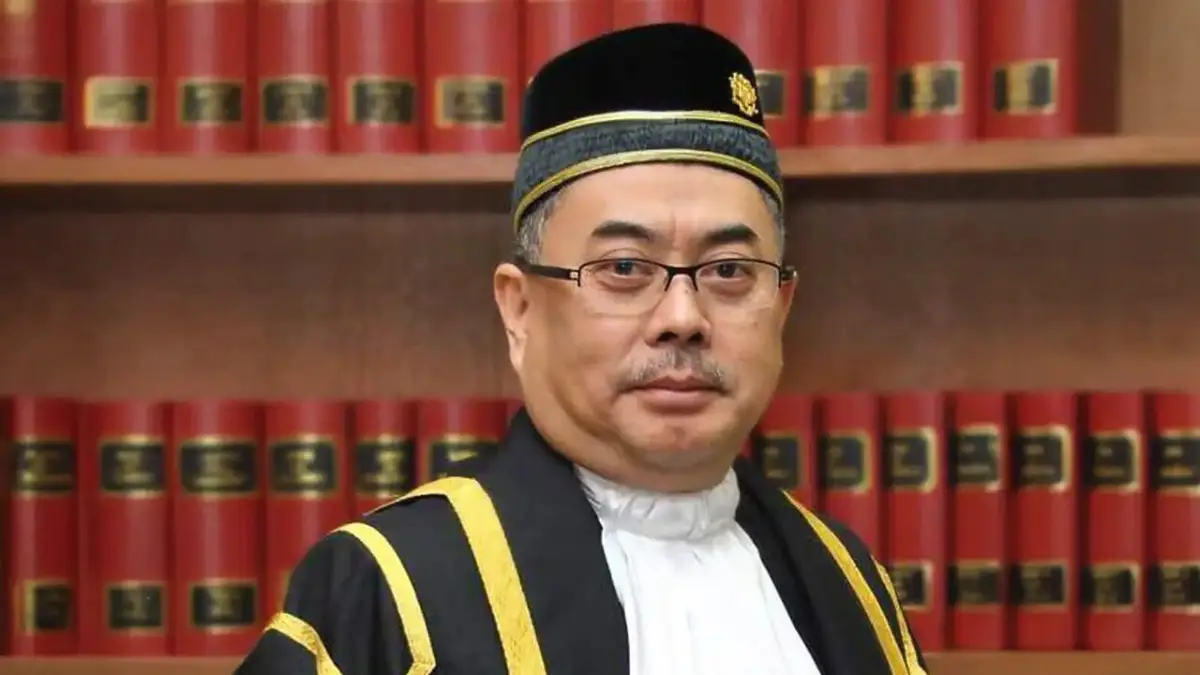In a significant development for Malaysia’s judiciary, Sultan Ibrahim, King of Malaysia, has approved the appointment of Datuk Wan Ahmad Farid Wan Salleh as the new Chief Justice of the Federal Court. This decision, announced on July 18, 2025, marks a pivotal moment for the country’s legal system, coming at a time when the judiciary faces public scrutiny and calls for reform. Wan Ahmad Farid, previously a Court of Appeal judge, steps into the role following a vacancy left by Tun Tengku Maimun Tuan Mat’s mandatory retirement in 2025.
A New Era for Malaysia’s Judiciary
The appointment of Wan Ahmad Farid, alongside two other senior judicial figures, was made in accordance with Clause (1) of Article 122B of the Federal Constitution. The decision followed advice from the Prime Minister and consultation with the Conference of Rulers, as confirmed by the Office of the Federal Court Chief Registrar in a statement. Datuk Abu Bakar Jais has been named President of the Court of Appeal, while Datuk Azizah Nawawi takes over as Chief Judge of the High Court in Sabah and Sarawak. These appointments signal a reshuffling at the highest levels of Malaysia’s judiciary, with an official swearing-in ceremony scheduled for July 28 at Istana Negara in the presence of the King.
Wan Ahmad Farid, aged 62, brings a wealth of experience to his new role. Appointed to the Court of Appeal on November 12, 2024, he has a background that spans both law and politics. From March 19, 2008, to April 9, 2009, he served as Malaysia’s Deputy Home Minister, a position that placed him at the heart of national security and governance during a turbulent political period. His transition from politics to the judiciary has not been without scrutiny, given his past affiliation with the United Malays National Organization (UMNO), a dominant political party in Malaysia until recent years. In 2013, Wan Ahmad Farid publicly announced his retirement from politics after an unsuccessful bid in the 2009 Kuala Terengganu state by-election.
Navigating High-Profile Cases
In his judicial career, Wan Ahmad Farid has presided over several high-profile cases that have captured national attention. Among them is the judicial review application by the parents of Teoh Beng Hock, a political aide whose mysterious death in 2009 while under investigation by the Malaysian Anti-Corruption Commission (MACC) remains a contentious issue. The case has long been a symbol of public demand for accountability in Malaysia’s institutions. Additionally, Wan Ahmad Farid was involved in Tun Daim Zainuddin’s legal challenge against an MACC probe, a case that underscores ongoing tensions between the judiciary and anti-corruption efforts targeting prominent figures.
Legal experts note that these cases highlight the delicate balance Malaysia’s judiciary must strike between upholding the rule of law and navigating politically charged issues. Wan Ahmad Farid’s rulings in such matters will likely set the tone for his tenure as Chief Justice, particularly as public trust in state institutions remains fragile following years of political upheaval and corruption scandals.
Breaking Tradition: Seniority Not a Prerequisite
The appointment of Wan Ahmad Farid has also reignited discussions about the criteria for selecting Malaysia’s top judicial officer. While seniority has often been a guiding factor in such decisions, legal analysts emphasize that it is not a strict requirement under the Federal Constitution. This flexibility allows for the elevation of judges deemed suitable based on merit, experience, and judicial temperament, rather than years of service alone. Wan Ahmad Farid, who was reportedly considered a front-runner for the Chief Justice position prior to the official announcement, exemplifies this shift in approach.
The vacancy left by Tun Tengku Maimun Tuan Mat, Malaysia’s first female Chief Justice, had been temporarily filled by Chief Judge of Malaya Tan Sri Hasnah Mohammed Hashim. The delay in naming a successor until now had raised questions about the government’s intentions for the judiciary’s future direction. With Wan Ahmad Farid’s appointment, attention now turns to how he will address lingering concerns over judicial independence, a topic that has gained prominence since the 1MDB financial scandal and subsequent political transitions.
Judicial Independence Under Scrutiny
Malaysia’s judiciary has faced significant challenges in recent years, with allegations of political interference and concerns over the impartiality of judicial decisions. The 1MDB scandal, which implicated former Prime Minister Najib Razak and saw billions of dollars allegedly misappropriated from the state investment fund, placed immense pressure on the courts to deliver justice without bias. Najib’s conviction in 2020 on charges related to abuse of power and money laundering was seen as a landmark moment, yet critics argue that systemic reforms are still needed to insulate the judiciary from external influence.
Wan Ahmad Farid assumes his role at a time when public expectations for transparency and accountability are higher than ever. Civil society groups have repeatedly called for mechanisms to ensure judicial appointments are free from political considerations, a concern amplified by Wan Ahmad Farid’s past as a politician. While there is no evidence to suggest his decisions have been swayed by his former affiliations, his background will likely remain a point of discussion as he navigates his new responsibilities.
Regional Context and Broader Implications
The changes in Malaysia’s judiciary occur against a backdrop of similar transitions across Southeast Asia, where legal systems are often tested by political and social dynamics. In neighboring Thailand, for instance, the judiciary has played a central role in recent political crises, with court rulings dissolving opposition parties and shaping the country’s democratic trajectory. Similarly, in Indonesia, judicial reforms have been a focal point as the nation grapples with corruption and governance issues. Malaysia’s latest appointments, therefore, are not just a domestic affair but part of a regional conversation about the role of courts in upholding democratic principles.
For Malaysia specifically, the judiciary’s ability to act as a check on executive power is critical. The country has seen multiple changes in government since the historic 2018 election that ended decades of UMNO dominance, with each administration facing accusations of leveraging state institutions for political gain. Wan Ahmad Farid’s leadership will be closely watched for signs of whether the judiciary can assert its independence amid such pressures.
Challenges Ahead for the New Chief Justice
As Wan Ahmad Farid prepares to take his oath on July 28, several challenges loom large. Beyond high-profile cases, he will need to address systemic issues such as case backlogs, access to justice for marginalized communities, and the integration of technology in court processes—a growing priority across the region. Additionally, his tenure will likely involve overseeing the judiciary’s response to legislative changes proposed by the current government, including potential amendments to laws governing corruption and civil liberties.
Legal observers also point to the need for greater diversity within Malaysia’s judiciary. While the appointment of Datuk Azizah Nawawi as Chief Judge of the High Court in Sabah and Sarawak marks a step forward for gender representation, broader efforts to reflect Malaysia’s multiethnic society in judicial roles remain incomplete. Wan Ahmad Farid could play a pivotal role in advocating for such inclusivity, setting a precedent for future appointments.
Looking Forward
As Malaysia embarks on this new chapter in its judicial history, the impact of Wan Ahmad Farid’s leadership remains to be seen. His past as both a politician and a judge offers a unique perspective, but it also places him under intense scrutiny to demonstrate impartiality. With the swearing-in ceremony just days away, the nation watches closely, hopeful that this transition will strengthen the judiciary’s role as a pillar of democracy in a country still healing from years of political and institutional challenges.
















